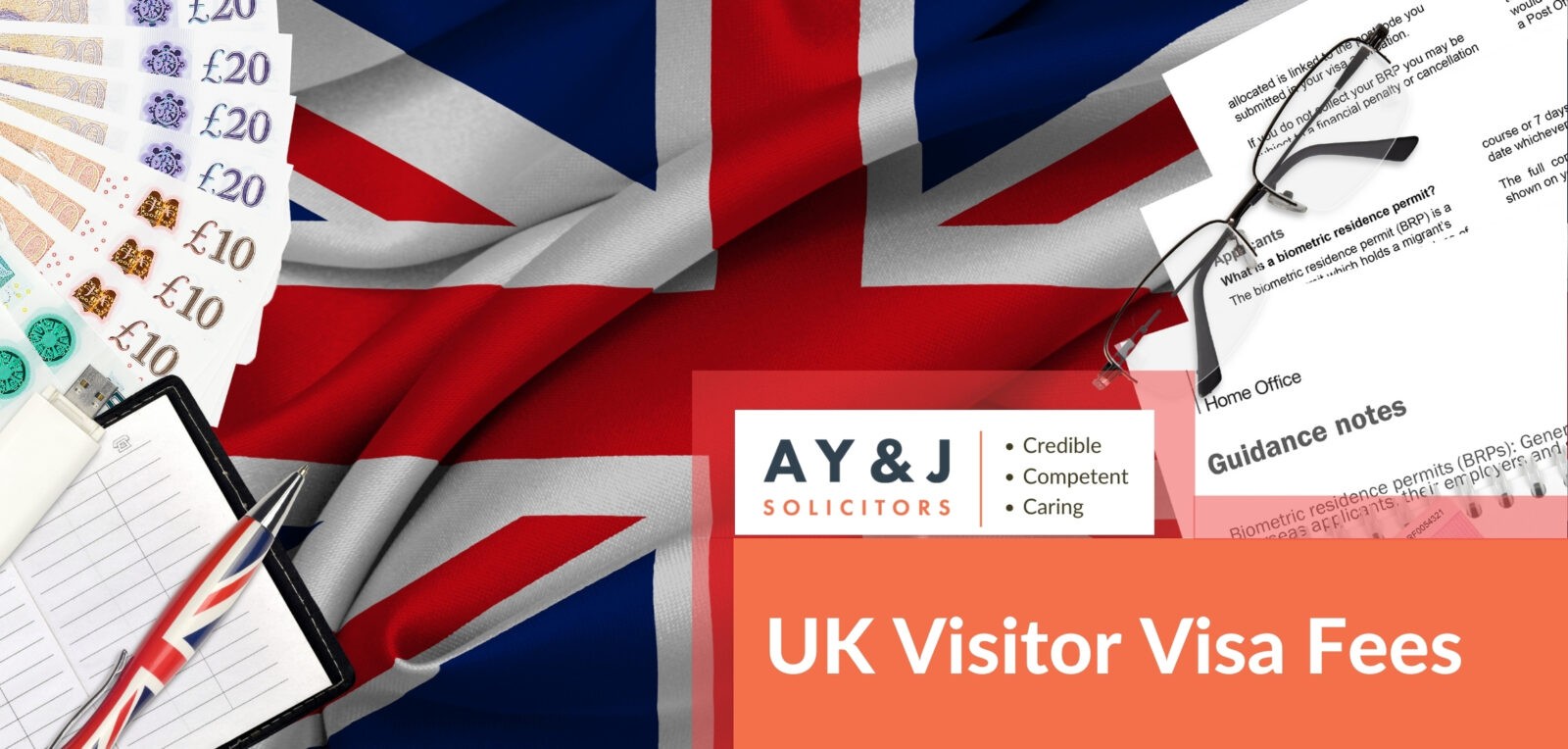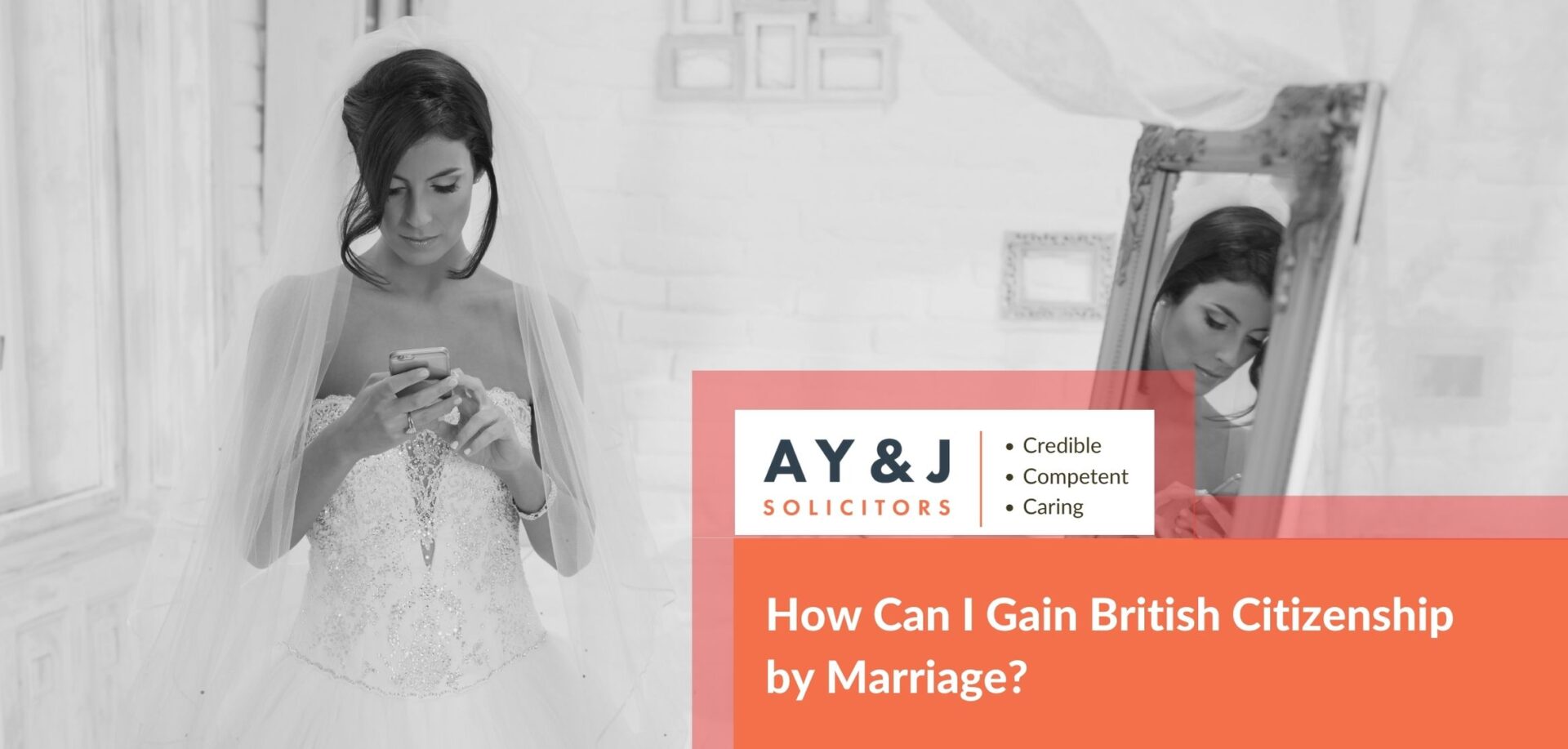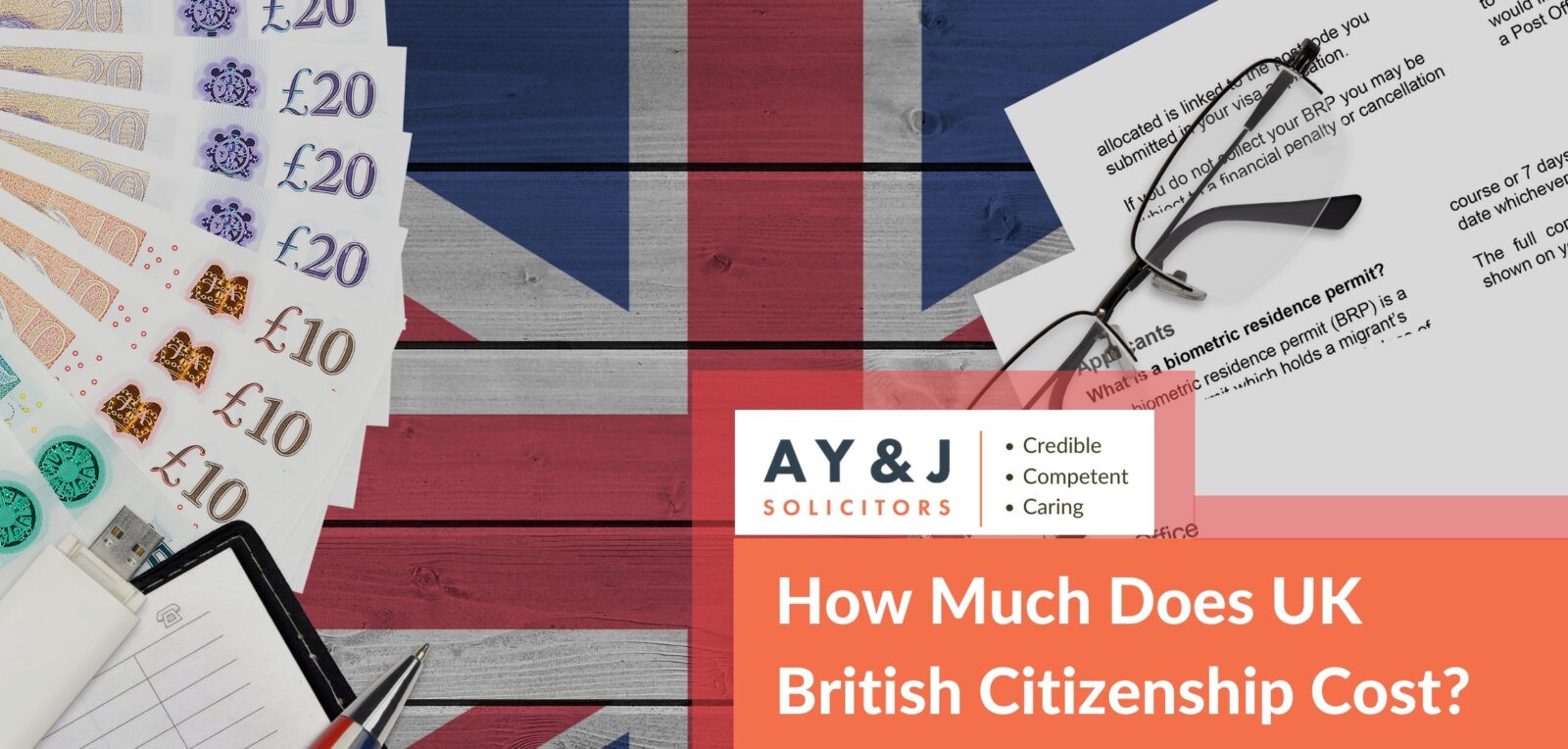Disclaimer: The information in this blog is accurate as of its publication date. Any updates after that date are not reflected here.
Planning a holiday, family reunion, or short business trip to the United Kingdom starts with one clear question: How much is the visa, and what rules apply now? This blog gives you the exact 2025 UK Visitor visa fees and every requirement, document checklist, refusal risk, and step-by-step application tip you will need before you press submit and book your biometrics appointment.
- Visa fees: 6 months = £127, 2 years = £475, 5 years = £848, and 10 years = £1059
- Value to travellers: The UK Visitor Visa allows millions each year to enter for tourism, family visits, business meetings or private medical treatment
Note down the UK Tourist visa fees. Keep reading, and you will find everything else you need to secure your UK entry clearance the first time.
Table of Contents
What is a UK Visitor Visa and What Does It Allow You to Do?
The UK visitor visa allows foreign nationals to visit the UK for a period of up to 6 months at a time for tourism, visiting friends and family, business, study, medical treatment, permitted paid engagements, and other purposes. There are several types of visitor visas, and it is important to know which activities are permitted under each type. You must ensure that you apply for the correct visa type depending on the purpose of your visit.
How Much Does a UK Visitor Visa Cost?
How much is the UK tourist visa fee in 2026? If you’re researching the UK visa fees for tourists, here’s what you need to know for 2026. The Home Office last adjusted the UK Visitor visa fees on 4 October 2023, and they remain unchanged in 2026. The following table shows the updated UK Tourist visa fees.
| Visa type | Duration/details | Fee (2026) |
| Standard Visitor | up to 6 months | £127 |
| Standard Visitor – long term | up to 2 years | £475 |
| Standard Visitor – long term | up to 5 years | £848 |
| Standard Visitor – long term | up to 10 years | £1,059 |
| Marriage Visitor | up to 6 months | £127 |
| Permitted Paid Engagement Visitor | short stay category | £127 |
| Transit Visitor (airside) | direct airside transit | £39 |
| Transit Visitor (landside) | visitor in transit landside | £70 |
| Private Medical Treatment Visitor | more than 6 months up to 11 months | £220 |
You may also need to pay service fees charged by the visa centre, which are separate from the official Home Office UK Tourist visa fees. Understanding the UK Tourist visa cost helps you budget accurately for your entire trip.
Who Needs to Apply for a Visitor Visa?
Anyone who is a national of a country listed in the Visa National list must apply for a visitor visa in advance before entering the UK.
Certain countries’ nationals are visa-exempt and do not need to obtain a Standard Visitor visa before travelling. Citizens of the United States, Canada, and many European Union countries, for instance, are classed as non-visa nationals and may enter the UK for up to six months for tourism or business, provided they satisfy the visitor rules. Instead of a visa, these travellers must normally secure an Electronic Travel Authorisation.
If your nationality is not on the visa-exempt list, you must obtain a visitor visa before you travel and cannot seek entry permission at the border.
Types of Visitor Visa
There are several types of visitor visas:
- Standard Visitor for tourism and family visits
- Marriage/Civil Partnership Visitor for those coming to marry or form a civil partnership
- Permitted Paid Engagement Visitor for those coming to do a specific paid activity
- Transit visa is for those who want to transit the UK on route to another country outside of the Common Travel Area
- Private Medical Treatment Visitor for those having private medical treatment for a condition or donating an organ
How Long Can You Stay?
If you are asking about the UK visitor visa stay duration, the timeline below sets out how long you can remain under each visitor category and notes any exceptions that may apply.
Quick Facts Box:
| Visa Type | Stay Duration | Notes |
| Standard Visitor | Up to 6 months | Applies per trip. |
| Long-term Standard Visitor (2, 5 or 10 years) | Up to 6 months per visit | Each entry is limited to 6 months, even if the visa lasts longer. |
| Marriage Visitor | Up to 6 months | For marriage or civil partnership in the UK. |
| Permitted Paid Engagement Visitor | Up to 1 month | For short-term paid professional work, such as lectures or performances (must be completed within 30 days of arrival) |
| Transit Visitor | Up to 48 hours | For airside or landside transit only. |
| Private Medical Treatment Visitor | Up to 6 months | Can be extended to 11 months if treatment continues longer. Extension fee: £1,100. |
Remember: Every visitor route is temporary. You have to leave the United Kingdom when your permitted stay ends, and if you make repeated or long visits you can expect closer examination from UK Border Force officers.
Eligibility Requirements
To successfully apply for a Visitor visa, you must show that you meet certain eligibility requirements, including that you are genuinely seeking entry as a visitor and that you intend to leave the UK after your visit. The UK Standard Visitor visa fee is only one part of the application process.
Below are the main requirements to consider, including how much money is required for a UK visit visa and what evidence is expected:
- Genuine Visitor: Must be genuinely seeking entry as a Visitor. You must declare the intention of the visit, for example, to visit family or attend business or medical purposes.
- Funds and Financial Proof: Need enough money to pay for your trip without using public funds. There is no set amount, but you must show you can cover accommodation, travel and daily costs. A third party can also provide these funds.
- Sponsor Support: If a third party (sponsor) is providing funds, such as a family member, they must have a genuine relationship with the applicant and sufficient financial means. This also answers how much money do I need to sponsor a visitor to UK. The sponsor must not be in breach of immigration laws and must be willing to provide support for the duration of the stay.
- Intention to Leave: Must intend to leave the UK at the end of the visit.
- No Long-Term Residence: Must not intend to live in the UK for an extended period of time.
In short, while there is no fixed financial threshold, the Home Office expects you to prove that your travel plans are realistic, your stay is temporary, and you can fully support yourself (or be supported) during your visit.
UK Visitor Visa Documents Checklist
While there is no standard set of documents required for the visitor visa, you must submit sufficient evidence to show you meet the eligibility requirements outlined above. The documents should be directly related to your purpose of visiting the UK. Below are key categories of documents you should prepare:
Identity Documents
- Valid passport or travel document for the applicant.
- Passport and/or BRP copies for sponsor/children/relatives in the UK.
- Previous passports showing travel history (if applicable).
Financial Documents
- Financial documents that prove the applicant has sufficient funds available to support themselves, for example bank statements, wage slips, proof of earnings, investments.
- When someone else is paying for your visit, supply their bank statements, an employment letter, and proof of how they are linked to you.
- No fixed balance is required, yet the evidence must show that every cost of the trip can be met.
Accommodation and Travel Documents
- Hotel booking confirmation or accommodation letter from your UK host.
- Include a return or onward travel booking, such as a flight itinerary, to show that you plan to leave the United Kingdom.
- Travel history.
Support and Relationship Documents
- Invitation letter from the UK-based sponsor.
- Provide evidence that shows your relationship to the person hosting you in the UK, such as a birth or marriage certificate, recent family photographs, or letters and messages you have exchanged.
- Show evidence that confirms your sponsor’s right to be in the UK and their ability to support you, such as payslips, an employment letter, or a tenancy agreement.
- Previous refusal letters.
For complete guidance on supporting documents for a visitor visa, please refer to the official guidance on the UK Visas and Immigration.
How to Apply for a UK Visitor Visa (Step by Step)
Obtaining a UK Standard Visitor visa is simple when you work through each stage in order. This guide takes you from the first checks to the moment your visa is approved.
Step 1 – Check You Need a Visa and Qualify
- Confirm that your nationality requires a visa
- Check that your planned activities are allowed under the Standard Visitor route
- Ensure you meet the core tests: genuine visitor, enough money, and intention to leave the UK after the trip
Step 2 – Collect the Paperwork
- Valid passport with at least one blank page
- Travel outline: dates, address in the UK, estimated budget
- Proof you can pay: recent bank statements, payslips, or a sponsor letter
- Proof of ties abroad: employer letter, property deed, family documents
Optional Relevant Documents (can apply to you):
- Travel history for the past ten years
- Details of any criminal convictions
- Tuberculosis certificate (where required)
- Invitation letter from the UK host
- Business registration (self-employed) or enrolment letter (students)
Step 3 – Fill in the Online Form
- Go to the official GOV.UK visa page
- Create an account and choose “Standard Visitor visa”
- Enter personal, travel and financial details
- Review every answer before clicking submit
Step 4 – Pay the Fee
Visit visa fees for UK:
- Up to 6 months: £127
- Long-term: 2 years £475, 5 years £848, 10 years £1,059
- Payment is online by debit or credit card and is non-refundable
- Optional: Priority £500 (5 working days) or Super Priority £1,000 (next working day)
Step 5 – Book Biometrics
- After payment, you are directed to the visa-application-centre (VAC) portal
- Choose location, date and time
Step 6 – Get Ready for the Appointment
- Original passport
- Printed appointment confirmation
- All supporting documents in clear order (plus certified translations if needed)
- Expect digital fingerprints and a photograph (the process lasts about 15 to 30 minutes)
Step 7 – Attend the Appointment
- Arrive fifteen minutes early
- Dress neatly for the photo
- Children under five attend but are not fingerprinted
- Follow VAC security rules
Step 8 – Send Your Documents
- Upload scans before the appointment (fastest) OR
- Hand papers to staff on the day OR
- Mail them if you apply from certain countries, such as the USA
Step 9 – Track Progress
- Use the reference number supplied after biometrics
- Standard processing: about three weeks (fifteen working days) from biometric appointment
- Email or SMS alerts keep you updated
Step 10 – Collect Passport and Visa
- Pick up at the VAC or receive by courier (if you prepaid for return shipping)
- Check the visa sticker for name, dates and validity immediately
- Allow one to three extra days for courier delivery; these days are not counted in the processing time
Processing Time for UK Visitor Visa – Can You Get It in 3 Days?
Standard service: It will take 15 working days for the visa processing from the biometric appointment.
Priority service: With this service, it will take 5 working days to get a decision with an additional fee of £500. Subject to availability at the visa centre.
Super-priority service: For an extra fee of £1,000, the decision can be made the next working day. Limited to selected centres.
With super-priority service, the decision is made the next working day, and the courier usually adds one or two more. If you book an appointment quickly, you can have the passport back in about 3 working days. Early booking is vital.
Do I Need an Invitation Letter for a UK Visitor Visa?
An invitation letter is not mandatory for a UK Visitor Visa, but it is strongly advised when you will be staying with family or friends.
- State exactly what the relationship is with the person who is inviting you.
- Confirm the address where you will live while you are in the United Kingdom.
- Explain who will pay for your travel, accommodation and day-to-day costs, if someone else is covering these expenses.
The Home Office does not always ask for an invitation letter, yet supplying one can show that your travel plans are genuine and that your accommodation and money arrangements are already in place.
Permitted Activities on a Visitor Visa
Visitors to the United Kingdom may participate in many different activities as long as they stay within the limits the Home Office has set. If you are wondering what you can do on a UK visitor visa, the guide below explains the permitted activities for each category.
2024–25 Updates: What’s New
From 31 January 2024, the Home Office expanded the list of activities allowed under the Visitor Visa. Key updates include:
Remote Work: You may carry out remote tasks for your overseas employer during your stay, provided the work is incidental to the purpose of your visit and not the primary reason for coming to the United Kingdom.
Client-Facing Work: Visitors who are employed abroad may now engage in client-facing activities that relate directly to their overseas role, as long as the activity does not constitute offshoring work to the United Kingdom.
Legal Services: Legal professionals may now deliver an expanded range of services, including advocacy, mediation, arbitration and transactional work, while visiting.
Permitted Paid Engagements: The activities are now folded into the Standard Visitor route with the Permitted Paid Engagement. Any permitted paid work must be finished within thirty days of arrival.
Tourism and Leisure
- Take a holiday or vacation.
- Visit family or friends in the UK.
- Volunteer for a registered charity for up to 30 days.
- Take part in a school exchange programme.
- Join a recreational course for up to 30 days.
Business
- Attend meetings, interviews, conferences or seminars.
- Negotiate and sign business deals or contracts.
- Attend trade fairs to promote your business (without directly selling).
- Take work-related training that is not offered in your home country.
- You can occasionally perform remote work for your overseas employer, as long as this is not the primary purpose of your trip.
- Carry out a limited amount of client-facing activity connected to your overseas job and within the same corporate group.
Study
- You can enrol in a short course of study that lasts up to six months.
- You may sit examinations or carry out other brief academic activities.
- Academics are allowed to visit the United Kingdom to conduct research or to participate in formal academic exchanges.
Medical
- Receive private medical treatment in the UK.
- Senior doctors and dentists may carry out clinical practice or teaching provided it is part of an officially approved arrangement.
Paid Engagement
- You may give a lecture, performance or other paid speaking engagement if a recognised UK organisation has invited you.
- All paid activities must be finished within 30 days of arrival. After that point you may carry on only with the activities normally allowed to a standard visitor.
How Much Money Do I Need to Sponsor a Visitor to the UK?
No fixed minimum balance is required to sponsor a UK Visitor Visa. What matters is demonstrating that you have sufficient funds to cover the visitor’s entire stay without financial difficulty or reliance on public funds. Many people frequently ask “how much money do I need to sponsor a visitor to UK?”
Sponsors should be able to show:
- Financial proof that you can pay for the visitor’s daily costs—meals, transport and personal expenses.
- Clear details of the accommodation, showing that the visitor will have a suitable place to live.
- Recent bank statements, payslips or other proof of income to confirm your financial stability.
As a general guide, many sponsors demonstrate roughly one hundred pounds for each day of the visit plus the cost of accommodation, yet this is only guidance and not a legal rule. The Home Office weighs every application on its own facts, looking at the length of the stay, the relationship between sponsor and visitor, and the overall credibility of the arrangements.
Most Common Reasons for Refusal
Visit visas can be refused for many reasons, including the following UK Visitor visa refusal reasons:
- Insufficient evidence of ties to home country
- Insufficient evidence of the financial circumstances or source of funds declared
- Insufficient evidence of the purpose of the visit
- Previous breaches of immigration rules or previous visa refusals
When planning your application, it’s important to factor in the UK Tourist visa price alongside gathering all necessary documentation. The cost of Visiting visa to UK varies depending on the validity period you choose.
What To Do If You Get a Refusal?
Many people ask, “Can I appeal a UK visitor visa refusal?” In most cases, the answer is no. The Standard Visitor route does not give a general right of appeal. Your refusal letter will state this clearly. Read the letter carefully to see if it mentions any available right of appeal or administrative review.
In most cases, it is advisable to make a fresh application that addresses the reasons for refusal. Further evidence should be submitted with the new application to strengthen the application and directly tackle the reasons for refusal in the previous application. You will need to pay the UK Visit visa fee again when submitting a new application.
If you think the Home Office made a mistake, for example, by missing key evidence or misapplying the rules, you can ask a court to look at the decision through Judicial Review. You start by sending a Pre-Action Protocol letter, often called a Letter Before Claim, which explains your legal grounds and invites the Home Office to reconsider. A carefully drafted letter can persuade the department to reverse the refusal and issue the visa without the need for further court action.
How We Can Help
The team at A Y & J Solicitors are experienced in dealing with Visitor Visas and we can help you with your new application to ensure it meets the requirements for a successful outcome. Whether you need clarification on the UK Tourist visa fees or guidance on meeting all requirements, we’re here to guide you through every step.
As you prepare your application, it is important to understand the standard Visitor visa UK fees so you can budget correctly. Our experienced team can give you a full breakdown of every cost, including the UK Tourist visa fee, and help you submit an application that is both complete and persuasive.A Y & J Solicitors is a specialist immigration law firm with extensive experience with Visitor Visas. We have an in-depth understanding of immigration law and are professional and results-focused. Our expertise with the UK Visitor visa fees and requirements means we can help you navigate the entire process smoothly. For assistance with your visa application or any other UK immigration law concerns, please contact us on +44 20 7404 7933 or contact us today. We’re here to help!










